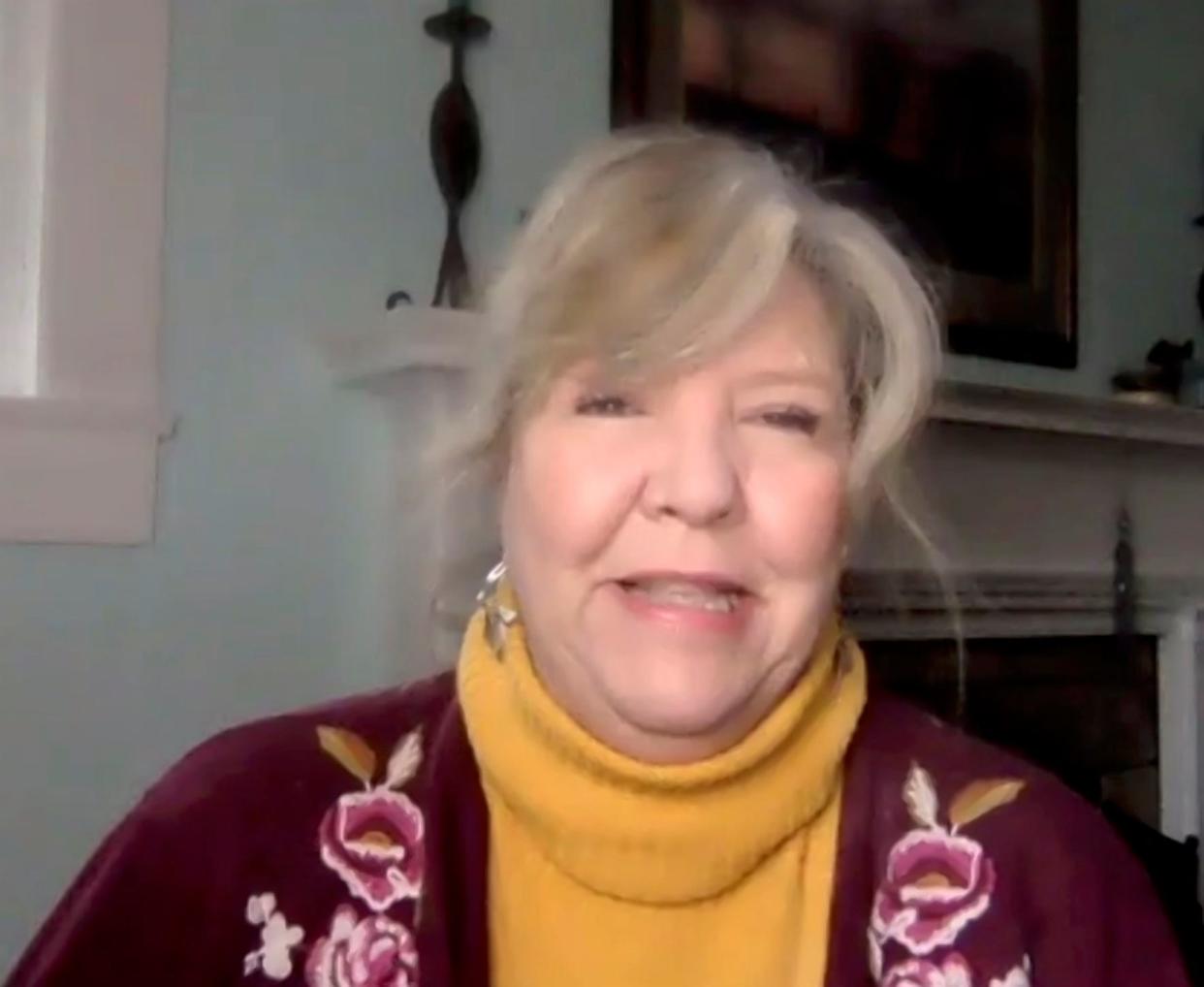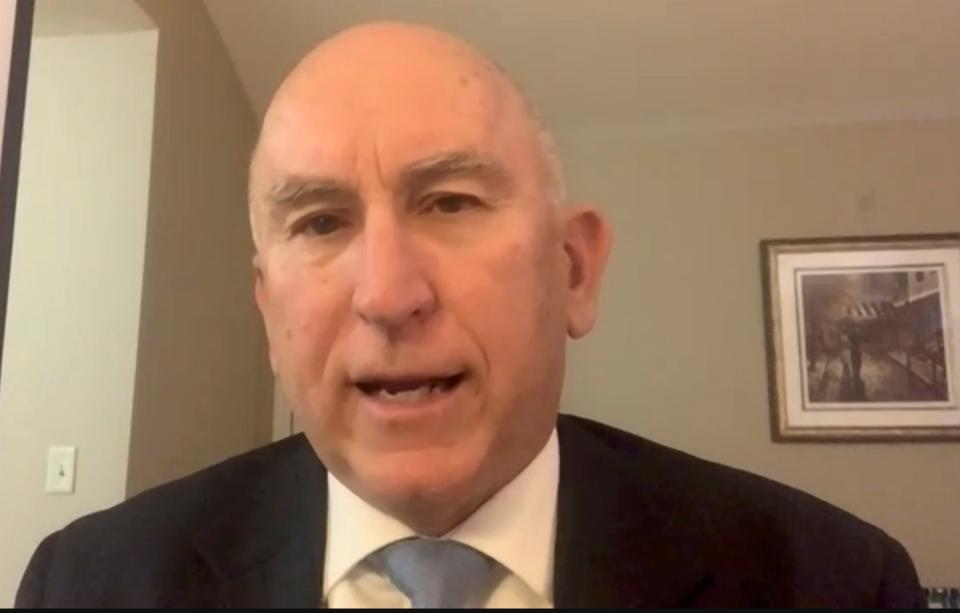Area legislators speak in support of Medicaid expansion

- Oops!Something went wrong.Please try again later.
“Not expanding Medicaid is the worst mistake Tennessee has made in modern history,” said Tennessee Rep. Gloria Johnson, retired educator and Democrat who represents House District 13 in Knox County.
She stated that a federal law would allow the state to expand Medicaid at no cost to it for 10 years as she answered questions in a recent online forum sponsored by the Tennessee Health Care Campaign, the League of Women Voters of Tennessee and the League of Women Voters of Oak Ridge.
“It is popular,” she said, noting that 65% of Republican lawmakers in the GOP-led Tennessee General Assembly support Medicaid expansion, 15% oppose it , and 20% have no opinion.

Joining her in the forum was Sen. Richard Briggs, a cardiothoracic surgeon and Republican, who represents Tennessee District 7 in Knox County. He has sponsored a bill in support of Medicaid expansion since 2015. He noted it has passed the Tennessee Senate’s Health Committee a few times but keeps dying in the Commerce Committee.
Johnson has personal reasons for supporting Medicaid expansion to cover the 300,000 mostly working poor in Tennessee who fall into the health coverage gap. These unfortunate folks can’t afford health insurance offered on the Affordable Care Act exchange and they can’t get TennCare’s Medicaid insurance mainly because they are not pregnant, have no dependent children or make too high a wage.
“My sister and her husband both lost their home and their business when my sister was very ill,” she said. “I personally believe that health care is a right and everyone should have access to it. Nobody should lose their home or business because they get sick.”
She added that some of the uninsured, low-income Tennesseans who become ill are dying early. The reason: they delay going to the hospital out of fear of a huge medical bill they won’t be able to pay, helping to explain why Tennessee has one of the nation’s highest number of personal bankruptcies.
Briggs said that under the federal American Rescue Plan Act of 2021, Tennessee could receive $900 million that would cover the cost the state would have to pay to expand Medicaid over 10 years (5% of the total cost). The federal government would pay 95% of the cost, giving the state more than $1 billion a year for Medicaid expansion.
The senator explained that the governor’s proposed block grant is based on the difference between what the state pays for TennCare and the budget neutrality cap. He noted that the block grant “would not provide enough money to cover 300,000 low-income, uninsured Tennesseans.”
Johnson referred to the block grant as a “non-starter” and “not an option.”
“We legislators need to explain to Tennesseans that it is good business to expand Medicaid and that it won’t cost the state to do so,” the senator said. “It will bring a lot of our tax dollars back to the state.” He added that since the passage of the American Rescue Plan Act, five conservative states have adopted Medicaid expansion: Arkansas, Louisiana, Missouri, Montana and Oklahoma.
Because the state has rejected Medicaid expansion, Briggs said, “Tennessee has had more hospitals close than any other state except Texas. When a hospital closes, the community loses doctors and other health care workers who have some of the best-paying jobs. The community can no longer keep their young people who want to become nurses. The state can’t recruit manufacturing industries into communities that have no hospital or health care. The census shows that the population of these rural communities is decreasing.”
The senator said he believes most businesses with uninsured workers will support it since the planned $6 billion Ford plant in West Tennessee will need 6,000 workers to make electric vehicles and batteries. Because the Ford plant will offer high salaries and health benefits, it could draw good low-income workers away from small businesses unless they have Medicaid health insurance.
Briggs said he believes that Medicaid expansion is more likely to be adopted in Tennessee if a leader like Gov. Bill Lee, who is also a businessman, would champion it and “explain to the public its economic advantages.”
He added, “We need leadership. At this point it’s a political issue, not a financial issue.”
Johnson agreed that “keeping Tennesseans healthy is good economic business.” But she said even though “the governor says he is business friendly, he’s more of an ideologue than one who cares about the economic conditions in Tennessee. His ideology and his desire to be re-elected get in front of what’s good for Tennesseans both health-wise and education-wise.”
She suggested that the governor may face challenges in a Republican primary by candidates more extreme than he is.
“He is putting his political calculus ahead of Tennesseans’ health," Johnson said.
“I believe he understands the problem and cares about Tennesseans,” Briggs said. “But because of the political reality, he is not willing yet to expand Medicaid. Once he is re-elected and becomes a lame duck governor, we may see him push for Medicaid expansion.”
This article originally appeared on Oakridger: Area legislators speak in support of Medicaid expansion

